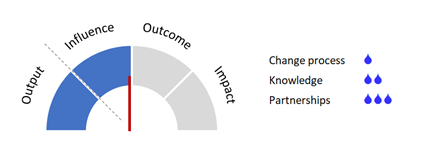Regional impact
Promoting water development through the Belt and Road Working Committee
The Belt and Road Working Committee of GWP China was established on 29 March 2023. Its formation came after the signing of a memorandum of understanding between GWP China and the China State Construction Engineering Corporation, a global investment and construction group. The founding of the Working Committee reflects the ambition of GWP China to engage the private sector to mobilise private investment, reduce impacts on water by key industries, and promote innovation and entrepreneurship.
The Working Committee shares the strategic goals of the Belt and Road Initiative, promoting cross-regional and cross-basin management and sustainable use of water resources in the Guangxi Zhuang Autonomous Region. The Working Committee will focus on four main responsibilities:
- Building a new pattern of a “two horizontal, eight vertical, and six rivers” water network – interconnecting high-quality construction projects of roads, rail, bridges, waterways, power stations, mines, and more, covering different industries regionally and nationally. Strengthening cooperation in water resources will be an important starting point.
- Leading research in water resources science and technology innovation.
- Coordinating forces to promote cross-regional, cross-basin, and cross-national development.
- Building a platform to enhance international influence by utilising the network of global water partners, becoming a strong academic authority, and creating a neutral cooperation platform.
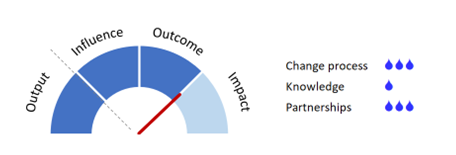
Uniting legislators towards sustainable development for all
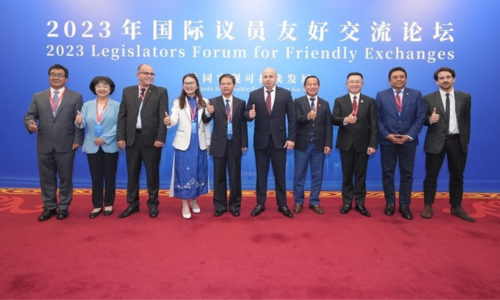
The city of Shenzhen, China is actively promoting sustainable development and firmly committed to green development. In September, more than 30 legislators from 17 countries came together for the 2023 Legislators Forum for Friendly Exchanges. The theme was “Towards Sustainable Development for All”, and the aim to strengthen cooperation among countries and promote common development.
GWP and GWP China are committed to facilitating change at the highest level. GWP China Regional Secretary General, Professor Jiang Yunzhong, is a member of the Environmental and Resource Protection Committee of the National People’s Congress, China’s highest state authority. As a Chinese legislator, Professor Jiang was invited to the forum, adding his voice alongside other high-level global policymakers. He led a sub-forum on low-carbon strategies, which gathered decision-makers from several countries, including Vashid AlsSaid Sheikh, member of the Algerian National Assembly, Vice Chairman of the Algerian China Friendship Group of the National Assembly, and former Vice President of the National Assembly.
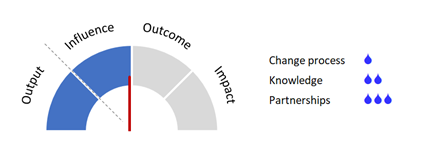
Exchanging water resources management knowledge between China and Cambodia
GWP Cambodia was invited to explore integrated water resources management (IWRM) implementation in China, thanks to support from GWP China and GWP Southeast Asia.
Several members of GWP Cambodia, along with partners and stakeholders, were provided the opportunity to explore IWRM implementation in the country. GWP China and partners shared their knowledge products and implementation outcomes with the visiting group.
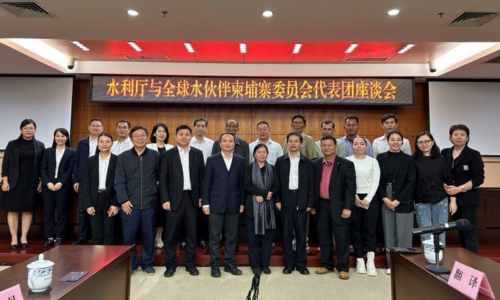
In Yunnan Province, they visited Erhai Lake to view the successful integrated pollution management system and digital smart irrigation – a system with innovative water saving and bank account access. In Guangxi Zhuang Autonomous Region, the Guangxi Water Resource Department shared their concept of harmonisation and coordinated development of water resources management. The group was introduced to the Nakao River wetland park drainage system, which treats wastewater, and the Yong River management project, which encapsulates harmonious balance between development and local livelihoods.
The group was also invited by the Belt and Road Working Committee of GWP China to visit the Youjiang data-based irrigation operation, and to learn about the goals of the Working Committee.
Solieng Mak, Chair of GWP Cambodia, said the visiting members were impressed with all sites they visited in the Yunnan Province and the Guangxi Zhuang Autonomous Region.
